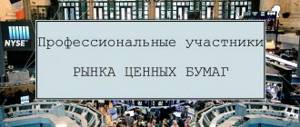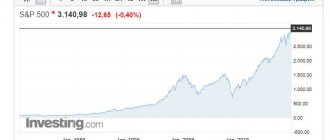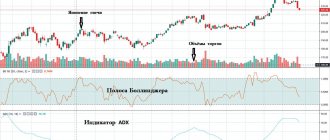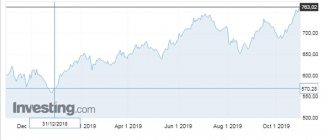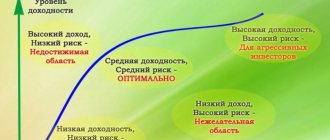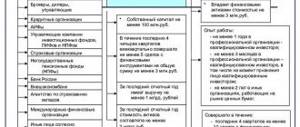The Russian securities market, in addition to its traditional representation in the person of the Moscow Stock Exchange (Moscow Exchange), has many other forms, one of which is regional securities markets. At the very dawn of the new democratic Russia in the early 1990s, when the country’s economy became truly free, throughout the country there were several hundred different exchanges and trading platforms, ranging from ordinary regional currency exchanges to platforms where government bonds were traded, unforgettable vouchers, oil, grain, etc.
As the Russian financial market developed, it began to become increasingly centralized, and to date there are a dozen regional commodity exchanges and the federal trading platform of the Moscow Exchange (and its branch in St. Petersburg), and the regional securities market has become even more narrow and acquired completely different shapes. However, securities of regional companies, the volume of which is several times larger than what is traded on PJSC Moscow Exchange, as well as state and municipal authorities, provides interesting opportunities for both corporate and private investors.
This article will talk about what the regional securities market is, what features it has, and how a private investor can participate in this very respectable financial market.
Classification
Securities market participants can be divided into three groups: issuers, investors and intermediaries (professional participants) .
Issuers are organizations that issue securities. These could be enterprises, banks, city authorities, government.
Emission is a procedure for issuing securities. The purpose of the issue is to attract financing by the issuer.
Investors are those who buy securities. Investors purchase securities not because the issuer needs money, but because they want to receive a certain return on their invested capital. The purpose of investing is to earn income from securities.
As we see, the goals of issuers and investors are different. However, each of the participants in the securities market achieves its goal. The issuer receives funds, and the investor, buying securities, expects to receive income.
In addition to issuers and investors, there are special organizations in the market that provide services to companies, the public and other individuals for the acquisition and sale of securities. Conventionally, they can be called intermediaries .
Imagine that the Far Eastern Shipping Company, located in Vladivostok, issues securities that, according to the investor, are an attractive investment because they promise high returns.
The investor lives in Moscow. What to do? Flying to Vladivostok is too expensive and will take a lot of time. To refuse to purchase these securities means not to receive a good income.
Special organizations, which are called professional participants in the securities market, help solve this problem
Subjects of the securities market
Specialists who can be conditionally classified as intermarket and intramarket are authorized to carry out the processes of issuing securities, their purchase and sale and other management actions. The former ensure the functioning of several markets, including the Central Bank market.
Important! These are, as a rule, groups of investors who invest capital in a variety of assets, playing on the stock, commodity and currency exchanges.
Intermarket news agencies, financial advisors, and ratings monitoring organizations can be classified as intermarket participants.
Intramarket participants include specialists working mainly with the securities market, and they, in turn, are divided into professional and non-professional participants:
- The non-professional composition of market players includes small and large investors who have invested any part of their capital in securities. You can find out how to become a non-professional investor on the website of the brokerage company.
- The functions of professional players are much broader. These are exclusively legal entities that are required to have a license to conduct the declared activity.
The responsibilities, functions and protection of the rights of all market entities are prescribed in the Federal Law “On the Securities Market”.
Types of professional participants
Professional securities market participants are organizations operating in the securities market with a special license. These include:
- brokers (Article 3 of the Law on Securities Markets);
- dealers (Article 4 of the Law on Securities Markets);
- forex dealers (Article 4.1 of the law on securities market);
- securities managers (Article 5 of the Law on Securities Markets);
- investment advisers (Article 6.1 of the Law on Securities Markets);
- depositories (Article 7 of the Law on Securities Markets);
- register holders (registrars) (Article 8 of the Law on Securities Markets);
- transfer agents licensed as a registrar, depositary or broker (Article 8.1 of the Law on Securities Markets);
- repositories (Article 15.5 of the Law on Securities Markets).
Brokers
Thus, professional participants are brokerage companies.
Brokers provide investors with services for buying and selling securities.
In Russia, these companies are often called investment companies. They offer investors a wide range of services, but above all, brokerage services, the essence of which is as follows. An investor who wants to work in the securities market enters into a brokerage service agreement with an investment company. The company opens an account for the investor, where the client transfers money, after which he can trade.
According to the law on the securities market, brokerage activity is the activity of executing a client’s instructions to carry out transactions in securities on the basis of paid agreements with the client.
The investor gives the broker an order to buy or sell certain securities. The minimum task facing a broker is to accurately execute the client’s instructions.
International securities marketThe international securities market consists of two sectors. Firstly, this is a sector of securities that have appeared on the international financial market and represent the result of economic relations existing between countries at the state and corporate level. This sector also includes securities issued by financial institutions of various international organizations (UN, EU). Secondly, this is the sector of national securities entered for sale on the international market. The international securities market is characterized by many constant foreign exchange transfers and is therefore highly affected by changing exchange rates. States whose economic entities take part in transactions with securities on the international market, exercise control over them and regulate them, and pursue a policy of protectionism. Russia became a participant in this market after the State Duma adopted laws allowing state-owned enterprises, as well as private capital, to carry out relevant activities. The development of international trade in securities encounters a number of difficulties: state control and restrictions, taxation in importing and exporting countries, customs duties, the complexity of mutual settlements, etc. However, since all countries are aware of the need for interstate trade in securities serving intercountry capital migration, then these difficulties are resolved with the help of bilateral and multilateral agreements and improvement of the settlement mechanism. An obstacle to the development of this trade is the need to send securities from one country to another. Shipping is associated with risk, and therefore with high insurance payments and postal rates. In addition, it requires a certain time, which in some cases may be undesirable (in conditions of rapidly changing market conditions). Currently, a procedure has been developed and legislated (most developed and many developing national securities markets participate in it), allowing various market entities to actively participate in international trading in securities, including making complex arbitrage transactions. This procedure helps foreign companies list their shares on national exchanges (sell on the over-the-counter market) and relieves them of many of the hassles associated with sending securities from country to country. The content of the procedure is as follows: commercial investment banks, on behalf of their clients (or brokerage firms representing their clientele), purchase foreign shares (bonds), which continue to remain in their places of storage (depositories) and in return for which certificates of deposit are issued. The latter are allowed for sale on regional stock exchanges. Thus, there is a constant change of owners of securities not only on a national, but also on an international scale. Different categories of investors enter the international market for transactions with securities in different ways. For institutional investors, this exit is facilitated by the presence of foreign branches and subsidiaries, various types of integration links, etc. For individual investors, investment funds are a channel providing access to the markets of other countries. Investors purchase their shares issued on national markets, and the funds use the proceeds from the sale of shares to invest in foreign securities. Investment funds are divided into two types: open-end and closed-end. Both raise the funds they invest in securities by issuing their own shares. Open-ended funds continually trade shares with their shareholders, who can increase or decrease their ownership of them. A closed-end fund issues a fixed number of its shares and does not accept them back. Shares of such funds are traded on the secondary securities market and quoted on the stock exchange (their rate is influenced not only by supply and demand, but also by other factors). The differences between open and closed funds are not limited to procedural features of capital mobilization. If market conditions worsen, open-ended fund shareholders redeem their shares. To obtain the necessary funds, the fund may sell part of its portfolio of securities. Unlike an open-end fund, a closed-end fund can survive a period of unfavorable market conditions without selling its assets. The exchange system in countries where one exchange, located in the main financial center of the country, dominates, and the rest of the organized securities markets are regional in nature, is called monocentric. Monocentric exchange systems are available in the UK (London Exchange), France (Paris Exchange) and Japan (Tokyo Exchange). In a polycentric system, in addition to the main exchange, there are one or more large stock exchanges. A similar system is available in Canada (exchanges in Toronto and Montreal), Australia (exchanges in Sydney and Melbourne), and Germany (exchanges in Frankfurt am Main, Düsseldorf, Munich and Hamburg). In the USA, the exchange system does not fully correspond to the above classification: there are several large exchanges in the country, but the leading role is played by one - the New York (the world's largest stock exchange). In a monocentric exchange system, securities issued in foreign countries are traded on only one main exchange; in a polycentric exchange system (as in the USA), they are traded on several largest exchanges. Therefore, the flows of foreign securities on national stock markets are characterized by a high degree of monopolization. The main problem facing stock exchanges and other participants in the international securities market is determining both the advantages and disadvantages of listed values. Obviously, there are certain differences between securities issued by different issuers resident in different countries. They may relate to the assessment of the content of individual specific securities (stocks, bonds, futures, options, etc.), their rate of return, the size of commissions, the practice of setting market rates, the conditions for concluding transactions, and much more. There are different types of enterprise reporting in different countries, and therefore for many stock institutions in Europe, Asia and Latin America, access to the stock exchanges of the United States and Great Britain is difficult: the problem can only be solved by translating the reporting of the corresponding countries into the Anglo-American form, and this requires the use of familiar with this form of specialists. In the interests of developing the international securities market, the International Association of Stock Exchanges (founded in 1961) strives to unify the financial reporting of enterprises and the practices of stock exchanges in all countries. The US and UK are among those countries where stock market norms are expected to undergo significant evolution. This is due to the fact that in the mentioned countries institutional investors do not have the right to membership in stock exchanges, and therefore are forced to turn to members of the stock exchange and incur additional costs for transactions with securities. The Anglo-American type of stock exchange involves the monopolization of the exchange process of concluding transactions by a special group of the largest dealers represented on the exchange, and the execution of their individual orders and operations by the remaining participants in the exchange process. In international securities trading, large banks play an increasing role, often performing the functions of an exchange. These banks are capable of performing intermediary functions - selling and buying securities on behalf of their clients, and their rate will adequately reflect the existing supply and demand for them. However, banks are not going to replace exchanges in everything; the over-the-counter market they control in many respects complements the exchange market. Thus, since bond income is relatively stable, and their market value is associated primarily with loan interest, banks have transferred a significant part of their transactions to the over-the-counter market. Banks engage in transactions not only with the best securities (like the stock exchange), but also with secondary ones that would not be able to undergo an exchange listing. Finally, international trading in securities, since exchanges retain a national character, is carried out mainly through banks. In the 70s within the framework of the Organization for Western European Securities Turnover, based on the NASDAQ3 automated quotation system implemented in the USA, its own automated system for servicing over-the-counter turnover has been created. The most important element of the institutional structure of the international securities market are intermediaries. Their functions include organizing the placement of new issues of securities, executing orders for the purchase and sale of securities traded on the secondary market, and managing capital, which, on behalf of their owners, is invested in shares and bonds. In the latter case, intermediaries act as investors. International trading in securities is mediated by private commercial and investment banks. While the former have a wide field of activity, the latter are specialized and operate in the international and national securities markets. In the USA, Canada and Japan they are called investment banking firms, in the UK - merchant banks, in Switzerland - private banks. Despite the trend towards universalization of banking activities, the differences that exist between commercial and investment banks remain. In 1933, the US Congress passed the Glass-Steagall Act, according to which commercial banks were prohibited from engaging in securities transactions. Their departments, which were previously involved in these operations, were transformed into independent investment banks. The banking systems of Canada and Japan were built in a similar way. One of the reasons for this transformation was the massive nature of operations with securities, which required the organization of a special banking institution for their effective implementation. In the 60-70s. the differences between the activities of commercial and investment banks began to decrease. The first reason for this is that legislation in the United States has moved to “soften” the Glass-Steagall Act. The second reason is the rivalry between the two types of banks and their foreign branches. The latter, operating in different countries, not being controlled in all respects by national legislation, began to violate it in the interests of obtaining greater profits: foreign branches of commercial banks began to engage in transactions with securities, and investment banks - in commercial lending. Investment banks, in connection with the development of the international securities market, led the financial syndicates created in the primary market, engaged in the issue and placement of shares and bonds. Commercial banks pushed aside investment banks when placing Eurobonds on the primary market; In the secondary market, investment banks maintain a strong position. In national capital markets, the concentration of investment banking business has reached a high level, and therefore the expansion of investment banking operations abroad has become the main direction of their growth. It is thanks to this that such powerful investment and financial groups have been formed operating in the international securities market, such as the American Merrill Lynch, Solomon Brothers, Morgan-Stanley, etc. Investment banks are traditionally formed in the form of partnerships, which allows them to significantly limit information about their activities, but at the same time it limits their capabilities. In the international securities market, commercial banks represent financial power greater than investment banks. In addition, they concentrate large blocks of shares in non-financial companies, that is, industrial corporations, which instruct them to place their shares. The instability of the economic and political situation in Russia is increasingly forcing owners of capital to invest it in securities of foreign companies. Their acquisition can be identified as an independent area of investment. In Russia, foreign securities can be purchased, firstly, on stock exchanges, where they are listed and registered; secondly, on the over-the-counter market, where they are traded by commercial banks and investment funds, and thirdly, by turning to the services of firms participating in the stock market of other countries. The purpose of purchasing foreign securities can be not only to make a profit or play on the difference in their rates, but also to save your savings from inflation and ensure their conversion into a stable currency. Most countries welcome the influx of foreign capital in this form and create the necessary incentives to increase it. Thus, in the United States, tax legislation provides for a 50% tax rate on the increase in the market value of shares if they are owned by foreigners. In Russia, there are a number of companies that have been investing capital in shares of companies in the United States and other countries for several years. These include, for example, the American-Russian Commercial Alliance (ARCA), an open joint-stock company with 100% foreign capital (registered in 1991). ARKA is associated with the New York Stock Exchange, where it can purchase shares through intermediaries. It is very difficult to sell securities of Russian companies on the stock exchange. According to the rules of the exchange, it is necessary that: the market value of the company's shares be at least $100 million; the number of shareholders owning 100 or more shares - at least 5 thousand people; profit (before taxes) must be at least $100 million in the year preceding the application for admission to quotation, etc. In practice, only shares of the world's largest companies can be traded on the New York Stock Exchange. It is not easy for Russian companies to overcome such barriers. ARKA's cooperation with its clients is based on an assignment agreement, according to which investors can give the alliance various tasks (to limit prices, deadlines, etc.). These include, for example, a market order to buy X shares at the lowest price, sell Y shares at the highest price, and make a minimum selling price and a maximum buying price. This may be an order to buy or sell shares at the moment when the price reaches the level specified in it. The deadlines for the execution of such orders are set differently: one day, ten days, etc. (if the order is not executed within this period, then it should be canceled). Other points may be included in the client’s order: the broker’s right to act at his own discretion, the requirement to fulfill the order “only in full”, “not to reduce or increase the price”, etc. Thus, ARKA’s activities are structured in accordance with international rules. Transactions with foreign securities are also carried out by the company “Russian Brokers” (Robrok), which in 1992 began operations not only with shares of American corporations, but also with US treasury obligations. The client selects the securities he is interested in according to the list, payment is made at their exchange rate New York Stock Exchange (payment is made in foreign currency and rubles). Brokerage companies Sovleks, Granika, etc. are actively working with shares of foreign companies. Their number is constantly increasing. The penetration of shares of foreign companies into Russian stock exchanges is hampered by the lack of operational information communications with stock markets of other countries, the inability to correctly select foreign securities and act in contact with Western professionals. There are funds for the purchase of foreign securities in Russia: there are 20-25 billion dollars in circulation in the country. The acquisition of foreign stock values is an outflow of capital from Russia. If it occurs in accordance with current legislation, then it represents a legal form of capital export that corresponds to world practice. All states regulate the entry of foreign securities into the national market through: - administrative methods, regulating the issue of foreign securities into the national market (establishing appropriate quotas) and determining the categories of issuers who are granted the right to enter this market; — tax methods, introducing special taxes on issuers and investors purchasing foreign shares and bonds. As a rule, such taxes are imposed only on income received from the ownership of foreign securities; — exchange control, carried out by the central banks of the relevant countries and consisting of a special procedure (it may have a protectionist or prohibitive nature) for the acquisition of foreign currency necessary for the purchase of foreign securities. As a rule, such methods are widely used by developing and medium -developmental countries. A special part of the international securities market is the Eurobonds market. For more than two decades, the main borrower has been the “large seven” of the leading countries of the world for more than two decades. For these countries, the Eurobonds market is the most widely used part of the international capital market, because their share in Eurocredites (medium -term banking loans in Eurorality provided by international consortians of banks) is less than their share as borrowers in the Eurobonds market. The Eurobonds market is available primarily to transnational corporations. In addition to them, both international organizations and institutions participate in the Eurobonds market. The main place among them is occupied by the International Bank for Reconstruction and Development. The governments of some other countries (primarily developing) are also actively working in the Eurobligation market. The securities market in Russia today is characterized by small volumes, low liquidity, “unformed” in the macroeconomic sense (macro -export between various types of securities, as well as their share in financing the economy), the underdevelopment of the material base, trade technologies, depository and clearing network, lack well -thought -out, long -term stock policy. The development of the Russian securities market inhibits an insufficiently thought -out taxation system, especially income from the trade in new types of securities. All operations with securities are always associated with risk. Now in Russia, the risk is especially large and exists in many types: systemic (the risk of the crisis of the securities market as a whole); non -systemic (a combination of all types of risk associated with specific security); selective (the risk of improper selection of securities for investing compared to other types of papers in the formation of a portfolio); temporary (the risk of emission, purchase or sale of security at the wrong time, which entails losses); legislative changes (risk due to changes in the conditions of the issue, recognition of it invalid, etc.); liquidity (risk associated with the possibility of loss in the implementation of securities due to the changed assessment of its quality); Inflationary (the risk that with high inflation, income received by investors from securities will depreciate faster than growing, the investor carries real losses). There are many other types of risk for operations with securities. In Russia, all of them take place and are generated by the reigning economic and political instability. A high degree of risk not only prevents the development of the securities market, but also creates a barrier to maintain monetary accumulations of the population and enterprises. In general, in Russia, a mixed, polycentric model of the securities market spontaneously developed, in which commercial banks, stock exchanges and other financial institutions are present with equal rights. This model differs from the American one, where there are serious restrictions on operations with securities (in particular, for commercial banks).
Dealers, forex dealers and managers
Depository and registrar companies that operate in the securities market are designed to maintain records and store securities.
A dealer is an organization that has the right to publicly announce the terms of transactions with securities and enter into such transactions.
Forex dealers are organizations that enter into transactions aimed at changing market quotes of currency pairs.
A manager's license gives the right to accept for management securities owned by the investor.
Registrars and depositories
Registrars are organizations that maintain registers of securities owners.
Historically, securities were issued in documentary form, i.e. on paper. Note that securities must be stored somewhere. It is not safe to keep them at home. For example, ordinary shares of the Public Joint Stock Company “Mining and Metallurgical MCX: GMKN” are in circulation; the market value of each is 19,448.00 rubles (as of 01/03/2020).
Typically, investors store securities in special organizations called depositories. They ensure the safety of securities. In modern conditions, many types of securities are issued in book-entry form, that is, an account is opened for the investor in which the shares he purchased are listed. All records are kept electronically. In this case, the depository carries out accounting of securities.
Depositories are custodians of securities and take into account the transfer of ownership of them.
The difference between a registrar and a depository is that initially the register of shareholders is transferred to the registrar, and then an entry can be made in the account of the owner of the shares about the transfer of these securities for storage to the depository.
Transfer agents, on behalf of the registrar, perform part of the functions of the registrar: receiving documents, providing information from the registry.
Securities market object
The object of attention of market subjects are equity securities (ES), which have certain general properties:
- A security secures the legal ownership of its owner to property and non-property rights on the basis of current legislation, and can be certified or assigned;
- The issue of ECB is subject to the rules stipulated by the legislation of the Russian Federation, each issue of shares undergoes state registration;
- securities within one issue have an equal volume and period of exercise of rights, regardless of when the transaction was made with them.
ECBs include:
- Stock. This type of securities confirms the shareholder’s voting rights in the management of the joint-stock company (JSC), makes it possible to make a profit and claim his share of the property after liquidation.
- Bond. Secures the rights of its owner to receive, after a certain period of ownership, not only the nominal value, but also a pre-agreed percentage.
You can learn more about how investing in stocks occurs in our article.
Issue of emission securities is carried out in documentary and non-documentary forms. All ECB are bearer or registered.
Advisors and repositories
Investment advisers provide advisory services in relation to securities, transactions with them and (or) the conclusion of contracts that are derivative financial instruments by providing individual investment recommendations.
Repositories provide services for collecting, recording, processing and storing information about repurchase agreements concluded outside of organized trading , agreements that are derivative financial instruments, agreements of other types provided for by regulations of the Bank of Russia, as well as maintaining a register of these agreements.
More information about each type of professional activity, about exchanges and how they work can be found on our website.
